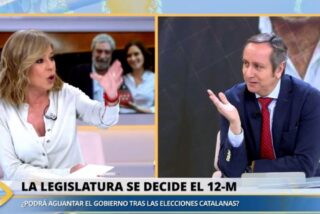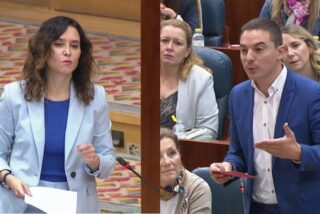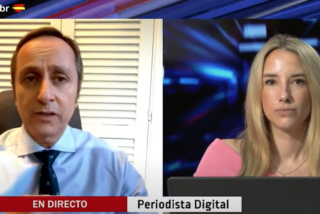 (PD / Agencias).- El Departamento de Estado norteamericano sostiene que el dinero negro procedente de la droga es uno de los elementos que está detrás del boom inmobiliario vivido en las zonas costeras del sur y el levante español. Así lo afirma en el capítulo dedicado a España de su «Informe de Estrategia para el Control Internacional de Narcóticos», difundido este sábado a través de su página web.
(PD / Agencias).- El Departamento de Estado norteamericano sostiene que el dinero negro procedente de la droga es uno de los elementos que está detrás del boom inmobiliario vivido en las zonas costeras del sur y el levante español. Así lo afirma en el capítulo dedicado a España de su «Informe de Estrategia para el Control Internacional de Narcóticos», difundido este sábado a través de su página web.
El informe recalca que «hasta un 30% de los billetes de 500 euros de la Eurozona circulan por España, directamente vinculados a la compra de propiedades inmobiliaras para blanquear dinero«.
«Una porcentaje indeterminado de los ingresos de la droga son invertidos en propiedades inmobiliarias de España, particularmente en las zonas costeras de fuerte crecimiento del sur y del levante del país«, señala el informe.
Como indicio que apunta en el mismo sentido, el Departamento de Estado señala que «hasta un 30% de los billetes de 500 euros de la Eurozona circulan por España, directamente vinculados a la compra de propiedades inmobiliaras para blanquear dinero«.
Según el Departamento de Estado, hay ayuntamientos que han preferido ignorar el origen de ese dinero. «Dada la gran rentabilidad del sector de la construcción durante los años pasados, muchos municipios costeros no han querido saber nada de la ilegalidad de diversos proyectos de construcción en sus localidades«, señala.
«Muchos municipios costeros no han querido saber nada de la ilegalidad de diversos proyectos de construcción»
La Fiscalía sí ha actuado frente a esa realidad, ya que sólo en la provincia de Málaga abrió en 2006 más de 200 expedientes por casos de corrupción ligados al sector constructor.
El informe del Departamento de Estado también señala que España es «un gran centro europeo de blanqueo de dinero, así como una gran puerta de entrada de sustancias narcóticas ilícitas«.
Recalca igualmente que las autoridades actúan duramente contra las organizaciones de narcotraficantes y mantienen un alto nivel de colaboración con la agencia antidroga norteamericana (DEA).
Texto extraído del informe:
QUESTION: Yeah. I have two questions, if I may. One on Bolivia and Peru that you expressed concern there. I wonder if you could spell it out a little bit, especially since Evo Morales was a coca leader and has supported use – legitimate uses of coca, whether you think that is counterproductive? And the other issue also a follow up on this issue of Europe. In the last report I remember that you single out Spain as the main transit country of cocaine into Europe. And I – you know, with this idea about, you know, the drugs coming from West Africa, I wonder if you could comment on the role of Spain and whether you think they should be doing more to prevent the transit of drugs there?
ASSISTANT SECRETARY JOHNSON: Okay. On Bolivia, we are concerned about the articulation of a policy which would increase the “illicit” cultivation of coca. We believe that the policy as it’s been articulated to me, is not consistent with Bolivia’s obligations under international law. And we have an ongoing conversation with the authorities in Bolivia to seek to address this. We also have a cooperative program with Bolivia where we’re continuing to work on areas where we can, including a significant eradication program.
With respect to Spain, I am not – I don’t know myself whether I would characterize it as the main gateway. I think certainly the Iberian Peninsula as a whole for geographic reasons, if no other, is the most likely entre peaux for most of the product which is coming out of West Africa into continental Europe. So I would surmise that that’s likely to have remained the same this year. We think we all can do more. I don’t fault the Government of Spain or the Government of Portugal for that matter, for not doing – not being focused on this problem. But I think the problem is getting worse and significantly because of the inadequacy of the cooperation and even the lack of cooperation from the authorities in Venezuela. And so it’s incumbent upon us for our own – you know, the protection of our own public to see how we could work more closely together and work more effectively on this problem as we look into the future.









































